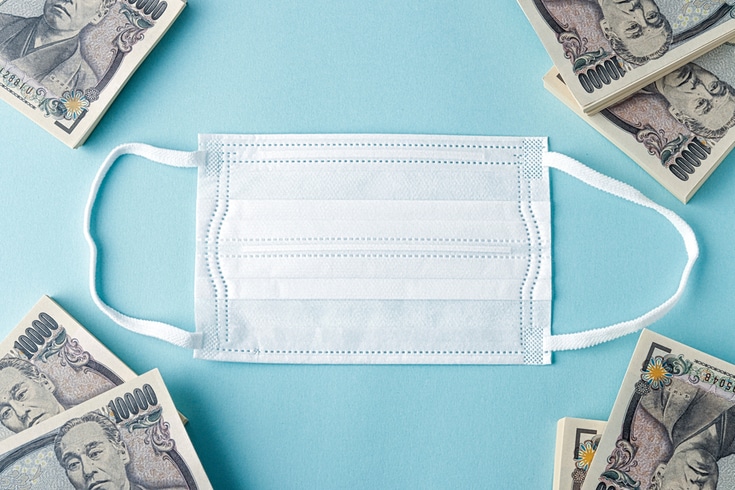Games and Law (Part 1): Japanese Copyright Act, Premiums and Representation Act, and Payment Services Act

In recent years, with the advancement of the internet, the nature of games has also been changing.
Before the internet developed, offline games were the mainstream. However, as the internet has evolved, online games have become the norm.
Furthermore, while games sold outright were once the standard, recently there has been an increase in games that operate on a in-app purchase basics within the game itself.
Games are changing in various ways every day, and along with these changes, the laws related to games are also evolving. However, I believe there are people who do not fully understand the laws related to games.
Therefore, in this article, I will explain the laws related to games that are surprisingly unknown.
Given the large number of laws related to games, I will divide the explanation into two articles.
What Laws are Related to Gaming?
Various laws are related to gaming, including the Japanese Copyright Act, the Act against Unjustifiable Premiums and Misleading Representations (hereinafter referred to as the “Premiums and Representations Act”), Payment Services Act, the Consumer Contract Act, the Act on Specified Commercial Transactions (hereinafter referred to as the “Specified Commercial Transactions Act”), and the Telecommunications Business Act, among others.
In the following, we will explain the overview of these laws and how they relate to gaming.
About the Japanese Copyright Act
What is the Japanese Copyright Act?
Many people may have heard of the term “copyright”. “Copyright” refers to the rights granted to the author of a work. Unlike patent rights, copyright does not require any registration or procedures. It naturally arises under the law at the time of creation. Because copyright does not require any special procedures to be recognized under the law, it is referred to as under the principle of automatic protection.
The law that protects this copyright is the Japanese Copyright Act.
Purpose of the Japanese Copyright Act
The purpose of the Japanese Copyright Act is stipulated in Article 1 of the Copyright Act as follows:
(Purpose)
Article 1: The purpose of this law is to define the rights of authors and rights related to performances, records, broadcasts, and cable broadcasts, and while paying attention to the fair use of these cultural properties, to protect the rights of authors and others, and thereby contribute to the development of culture.
In other words, the purpose of the Japanese Copyright Law is to protect the creative activities of authors by protecting copyright, and to contribute to the development of culture.
Regulations under the Japanese Copyright Act
Firstly, in order for a game to be protected under the Japanese Copyright Act, it is necessary for the game to be recognized as having copyright.
As for whether a game can be recognized as having copyright, this has been affirmed in judgments such as the Tokyo District Court’s judgment on September 28, 1984 (Showa 59) (Pac-Man case), the Supreme Court’s judgment on February 13, 2001 (Heisei 13) (Tokimeki Memorial case), the Supreme Court’s judgment on April 25, 2002 (Heisei 14) (Used Game Software case), and the Tokyo District Court’s judgment on February 25, 2016 (Heisei 28) (Valhalla Gate of the Divine Prison case). In these cases, games are treated as film works and are recognized as having copyright.
However, it is not the case that a game is recognized as having copyright simply because it is a game. As indicated in the Tokyo High Court’s judgment on March 18, 1999 (Heisei 11) (Romance of the Three Kingdoms III case) and the Intellectual Property High Court’s judgment on September 30, 2009 (Heisei 21) (Cage of Depravity case), caution is required as games that use a large number of still images may not be recognized as having copyright.
For games that are recognized as having copyright, it is necessary to be careful as using them without the permission of the rights holder may constitute copyright infringement.
About the Japanese Act against Unjustifiable Premiums and Misleading Representations
What is the Japanese Act against Unjustifiable Premiums and Misleading Representations?
The Japanese Act against Unjustifiable Premiums and Misleading Representations is a law that regulates businesses from falsely representing the quality, content, price, etc. of goods and services.
Purpose of the Japanese Act against Unjustifiable Premiums and Misleading Representations
The purpose of the Japanese Act against Unjustifiable Premiums and Misleading Representations is defined in Article 1 of the Act as follows:
(Purpose)
Article 1: This Act aims to protect the interests of general consumers by preventing the attraction of customers through unfair premiums and representations related to the transactions of goods and services, and by regulating and prohibiting acts that may hinder the autonomous and rational choice of general consumers.
In other words, the Japanese Act against Unjustifiable Premiums and Misleading Representations aims to protect the interests of general consumers by preventing the attraction of customers through unfair premiums and representations related to the transactions of goods and services.
Regulations under the Japanese Act against Unjustifiable Premiums and Misleading Representations
Regulations on Premiums
In online games, especially smartphone games, there is often a system called “paid gacha”.
If this “paid gacha” falls under the “premiums” defined in Article 2, Paragraph 3 of the Japanese Act against Unjustifiable Premiums and Misleading Representations, it will be subject to regulation under the Act.
3: In this Act, “premiums” refer to goods, money, or other economic benefits provided by a business operator in conjunction with the transactions of goods or services they supply (including real estate transactions), regardless of whether the method is direct or indirect, or whether it is by lottery, and are designated by the Prime Minister.
Therefore, whether the “paid gacha” falls under “premiums” is an issue. However, the Consumer Affairs Agency has published a document titled “About the ‘Complete Gacha’ of Online Games and the Premium Regulation of the Act against Unjustifiable Premiums and Misleading Representations”, in which it denies that “paid gacha” falls under “premiums”.
Regarding the application of premium regulation to paid gacha itself
https://www.caa.go.jp/policies/policy/representation/fair_labeling/pdf/120518premiums_1.pdf.[jn]
General consumers conduct paid gacha in exchange for payment to the business operator, and receive some kind of economic benefit such as items. In other words, the economic benefit that general consumers gain from paid gacha can be said to be the subject of the transaction between the general consumer and the business operator. In other words, the economic benefit from paid gacha is not something that the business operator provides to general consumers in conjunction with a separate transaction to attract the transaction (Premium Designation Notice Article 1. Refer to 4(1)A above).
Therefore, even if general consumers receive some kind of economic benefit from paid gacha, it does not fall under the premiums of the Act against Unjustifiable Premiums and Misleading Representations, and the premium regulation of the Act does not apply.
It is considered that “paid gacha” does not fall under “premiums” under the Act against Unjustifiable Premiums and Misleading Representations, and therefore is not subject to regulation under the Act.
In smartphone games, when the game becomes unplayable due to emergency maintenance or updates, items that can be used in the game are often distributed as an apology.
According to the “Restrictions on the Provision of Premiums to General Consumers” (https://www.caa.go.jp/policies/policy/representation/fair_labeling/public_notice/pdf.[jn]), these are considered to fall under the total attached premiums, and since they are distributed as an apology, the transaction amount is considered to be 0 yen, so the limit of the premium amount is 200 yen, so caution is required.
Regulations on Representations
The issues related to the regulations on representations are the superior misleading representation (Article 5, Paragraph 1 of the Act against Unjustifiable Premiums and Misleading Representations) and the advantageous misleading representation (Article 5, Paragraph 2 of the Act against Unjustifiable Premiums and Misleading Representations).
For more details on these, please refer to the following article.
About Payment Services Act

What is the Japanese Payment Services Act?
The Japanese Payment Services Act is a law that regulates the use of vouchers such as gift certificates and prepaid cards (including digitized electronic money), as well as the funds transfer business outside of banking.
Currently, various payment methods have emerged, and this law serves to regulate them.
Purpose of the Japanese Payment Services Act
The purpose of the Japanese Payment Services Act is defined in Article 1 of the Act as follows:
(Purpose)
Article 1 This Act aims to ensure the proper implementation of funds settlement services, protect its users, and promote the provision of such services. It prescribes necessary measures such as registration for the issuance of prepaid payment methods, foreign exchange transactions conducted by entities other than banks, exchange of virtual assets, and settlement of claims and obligations arising from foreign exchange transactions between banks and others. The purpose is to contribute to the improvement of the safety, efficiency, and convenience of the funds settlement system.
In other words, the Japanese Payment Services Act aims to protect users of funds settlement services, promote the provision of funds settlement systems, and enhance the safety, efficiency, and convenience of funds settlement systems.
Regulations under the Japanese Payment Services Act
In online games, users may purchase items in advance through in-game purchases, which can be used within the game. These items can be used for things like drawing gacha or buying weapons for use within the game.
The Japanese Payment Services Act regulates such in-game purchases made by users.
Under the Japanese Payment Services Act, in-game purchases are considered to fall under the definition of “Prepaid Payment Instruments” as defined in Article 3, Paragraph 1.
(Definition)
Article 3 In this chapter, “Prepaid Payment Instruments” refers to the following:
1. Instruments, electronic devices, or other objects (hereinafter referred to as “Instruments, etc.” in this chapter) that are issued in exchange for a price corresponding to the amount recorded or the number of goods or services recorded, and can be used to pay for the purchase or rental of goods, or the provision of services, from the issuer or a person designated by the issuer.
2. Instruments, electronic devices, or other objects that are issued in exchange for a price corresponding to the number of goods or services recorded, and can be used to request the provision of the recorded goods or services from the issuer.
If in-game purchases fall under the definition of “Prepaid Payment Instruments” as described above, they will be subject to regulations under the Japanese Funds Settlement Act.
Specifically, companies that provide games with an in-game purchase system are required to fulfill the following obligations:
- Information provision obligation
- Obligation to make security deposit for issuance
About the Information Provision Obligation
Under the information provision obligation, issuers of prepaid payment instruments are required to provide users with the following information (Article 13, Paragraph 1 of the Japanese Payment Services Act):
- Name, trade name, or title (Article 13, Paragraph 1, Item 1 of the Japanese Payment Services Act)
- Payable amount of the prepaid payment instrument, etc. (Article 13, Paragraph 1, Item 2 of the Japanese Payment Services Act)
- If there is a period or deadline for using the prepaid payment instrument to pay for the purchase or rental of goods, or the provision of services, or to request the provision of goods or services, the said period or deadline (Article 13, Paragraph 1, Item 3 of the Japanese Payment Services Act)
- Location and contact information of the office or offices responsible for handling complaints or inquiries from users regarding the issuance and use of prepaid payment instruments (Article 13, Paragraph 1, Item 4 of the Japanese Funds Settlement Act)
- Range of facilities or places where the prepaid payment instrument can be used (Article 22, Paragraph 2, Item 1 of the Cabinet Office Ordinance on Prepaid Payment Instruments)
- Precautions necessary for the use of prepaid payment instruments (Article 22, Paragraph 2, Item 2 of the Cabinet Office Ordinance on Prepaid Payment Instruments)
- For prepaid payment instruments that record the amount (including the number of units if the amount is converted and displayed in degrees or other units) or the quantity of goods or services by electromagnetic means, the method for knowing the unused balance or the said unused balance (Article 22, Paragraph 2, Item 3 of the Cabinet Office Ordinance on Prepaid Payment Instruments)
- If there are terms and conditions or instructions or similar documents (hereinafter referred to as “Terms, etc.” in this article) related to the use of prepaid payment instruments, the fact that such Terms, etc. exist (Article 22, Paragraph 2, Item 4 of the Cabinet Office Ordinance on Prepaid Payment Instruments)
If the information provision obligation is not fulfilled, there is a possibility of being fined up to 300,000 yen (Article 114, Item 2 of the Japanese Payment Services Act).
About the Obligation to Deposit Issuance Guarantee Money
The obligation to deposit issuance guarantee money is stipulated in Article 14 of the Japanese Funds Settlement Act.
(Deposit of Issuance Guarantee Money)
Article 14 Issuers of prepaid payment instruments must deposit issuance guarantee money equivalent to at least half of the unused balance as of the base date, which exceeds the amount set by government ordinance (hereinafter referred to as the “standard amount”), at the deposit office nearest to their main business office or office, in accordance with the provisions of the Cabinet Office Ordinance.
2. If the amount of the issuance guarantee money (including the total amount of the preservation money amount stipulated in the next article and the amount of the trust property stipulated in Article 16, Paragraph 1) becomes insufficient due to the completion of the procedure for exercising the rights under Article 31, Paragraph 1 or other facts, the issuer must deposit the amount of the deficiency and promptly report this to the Prime Minister.
3. The issuance guarantee money can be provided in the form of government bonds, local bonds, or other bonds specified by the Cabinet Office Ordinance (including transfer bonds as defined in Article 278, Paragraph 1 of the Law on Transfer of Corporate Bonds, Shares, etc.). In this case, the valuation of the bonds shall be in accordance with the provisions of the Cabinet Office Ordinance.
The obligation to deposit issuance guarantee money is a complex provision, so I will explain it in detail below.
First, the obligation to deposit issuance guarantee money is necessary when “the unused balance as of the base date exceeds the amount set by government ordinance,” as stipulated in Article 14, Paragraph 1 of the Japanese Payment Services Act.
The base date is defined in the marginal note of Article 3, Paragraph 2 of the Japanese Payment Services Act, and is set as March 31 and September 30 of each year.
The unused balance as of the base date is set at 10 million yen in Article 6 of the Enforcement Order of the Japanese Payment Services Act.
Therefore, if the unused balance exceeds 10 million yen as of March 31 and September 30 each year, you must deposit at least half of the unused balance at the deposit office nearest to your main business office or office.
For example, if game users have made a total of 100 million yen in in-game purchases and the items in the game worth 100 million yen have not been used, the game company must deposit 50 million yen, which is half of 100 million yen, as issuance guarantee money at the deposit office nearest to its main business office or office.
The purpose of stipulating the obligation to deposit issuance guarantee money is to protect users by refunding them in case the game company suddenly goes bankrupt or the service provision ends.
If the obligation to deposit issuance guarantee money is not fulfilled, there is a possibility of being sentenced to imprisonment for up to 6 months or a fine of up to 500,000 yen (Article 112, Item 3 of the Japanese Payment Services Act).
Summary: Understanding Obscure Japanese Laws in Gaming, Part 1
In conclusion, we have explained the laws related to games that are surprisingly unknown (Part 1), specifically the Japanese Copyright Law, the Japanese Act against Unjustifiable Premiums and Misleading Representations, and the Japanese Payment Services Act.
In the following article on well unknown laws related to games (Part 2), we will explain the Japanese Consumer Contract Act, the Japanese Act on Specified Commercial Transactions, and the Japanese Telecommunications Business Act.
Category: General Corporate
Tag: General CorporateIPO





















